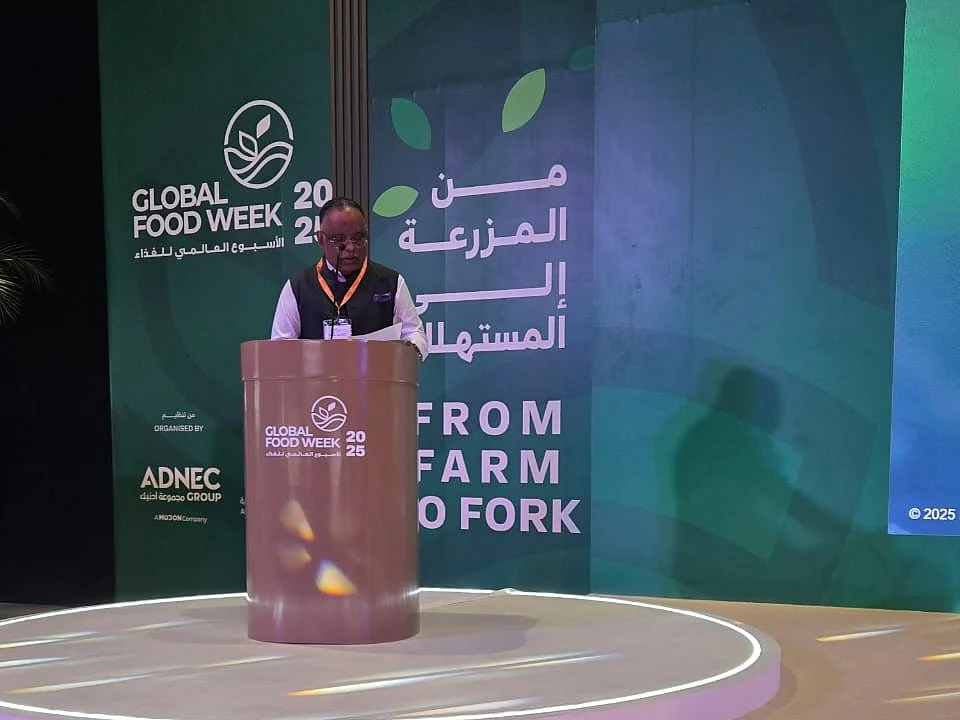
'Good Soil, Good Income': Dubai-Based CEO Says Farmers Could Soon Earn From Carbon Credits
Farmers could soon be able to earn money by storing carbon in their soil and helping to protect the Planet.
The idea, discussed at Abu Dhabi International Food Exhibition (ADIFE), part of the Global Food Week UAE, points to a near future where sustainable agriculture is not only good for the Earth but also financially viable, through the creation of carbon credits for regenerative farming practices.
Recommended For You Abu Dhabi court rules in favour of retiree in loan dispute with bank India: Toxic haze chokes Delhi; pollution soars to over 16 times' ideal levels“We are preparing farmers in the imminent future to earn from even carbon credits, from organic carbon sequestration in soils - yes, literally turning good soil into good income,” said Satyam Bose, Chairman and CEO of Virenxia Group.
Stay up to date with the latest news. Follow KT on WhatsApp Channels.
He explained that the shift towards carbon-linked income is part of a wider transformation in how farmers are being reskilled to operate in a data-driven, climate-smart economy.
His company's framework integrates sustainable bio-inputs, digital soil testing tools and AI-based advisory systems that guide farmers' decisions in real time. However, the human element remains at the heart of every change.“Technology doesn't change farming - people do.”
New culture of innovationTo show what this transformation looks like in practice, Bose shared the story of Ajay Chauva, a young agricultural graduate from Maharashtra in India who joined one of their training programmes.“Ajay came to us after finishing his Agri-degree, full of questions. We trained him in our systems, taught him to use AgriTMS, interpret data, apply our omics bio-input products and work correctly with farmers,” Bose explained.
The results were remarkable;“fast forward, Ajay is now running his own enterprise. He has become the data guy in his village, admired by everyone. He earns from the sales and services he manages, while the farmers around him earn from healthier crops and better yields,” Bose described.
In that farming cluster, he said, digital literacy and shared learning have created a new culture of innovation.“Now, when I visit that cluster, I hear farmers casually debating drone spread scheduling, macrobiotic activity and soil organic carbon, as if they were cricket scores,” he pointed.“That's what transformation looks like-it grows from the ground up.”
Same challengesBose drew parallels between rural India and the UAE's highly controlled agricultural systems, saying that while the conditions differ sharply, both face the same challenge of learning to trust data without losing traditional wisdom.“In India, we work with smaller farms, people who live on the edge of risk every season. Every decision they make has to pay off,” he said.“And here in the UAE, we work in some of the harshest agricultural environments in the world - desert climates, where every drop of water counts.”
“How do we help both become comfortable with data, devices and digital decision-making, but without taking away their generational instinct and experience, which they have owned over ages?” he questioned.
To support farmers in the region, he said, new systems are being integrated into greenhouses that provide real-time soil and water readings directly to growers' phones.“Imagine this - a farm owner sitting somewhere in Abu Dhabi, sipping coffee, and his phone shows your soil pH and EC are within range. Congratulations- that's what I call comfort farming.”
Data-backed decisionsThe shift is reshaping how farmers see themselves.“Reskilling farmers isn't just about teaching them to use a drone or an app. It's about changing how they see themselves. When farmers realise, they can make decisions backed by data, they don't just grow better crops - they grow immensely in confidence,” Bose concluded.
That confidence is drawing youth back to agriculture.“We are seeing the rise of a new generation of farmers who can fly drones in the morning and still haggle over fertiliser prices in the evening.” The modern farmer will wear“two hats - one made of straw, and one powered by silicon,” he added.“They will still harvest crops, but they will also harvest data. And when we give them the right tools, the right training and the right trust, they won't just grow crops - they will grow communities, resilience and a bountiful future.”
Bose's comments were made during the AgriTech Forum at ADFW 2025. The annual event spans diverse areas, including food innovation, modern agricultural technologies, supply and distribution chains, sustainability, healthy nutrition, food security, and regulatory policies.
The three-day event, which kicked off on Tuesday Oct 21, brings together global experts, entrepreneurs and policymakers to explore how emerging technologies can build more resilient and sustainable food systems for the future.

Legal Disclaimer:
MENAFN provides the
information “as is” without warranty of any kind. We do not accept
any responsibility or liability for the accuracy, content, images,
videos, licenses, completeness, legality, or reliability of the information
contained in this article. If you have any complaints or copyright
issues related to this article, kindly contact the provider above.


















Comments
No comment